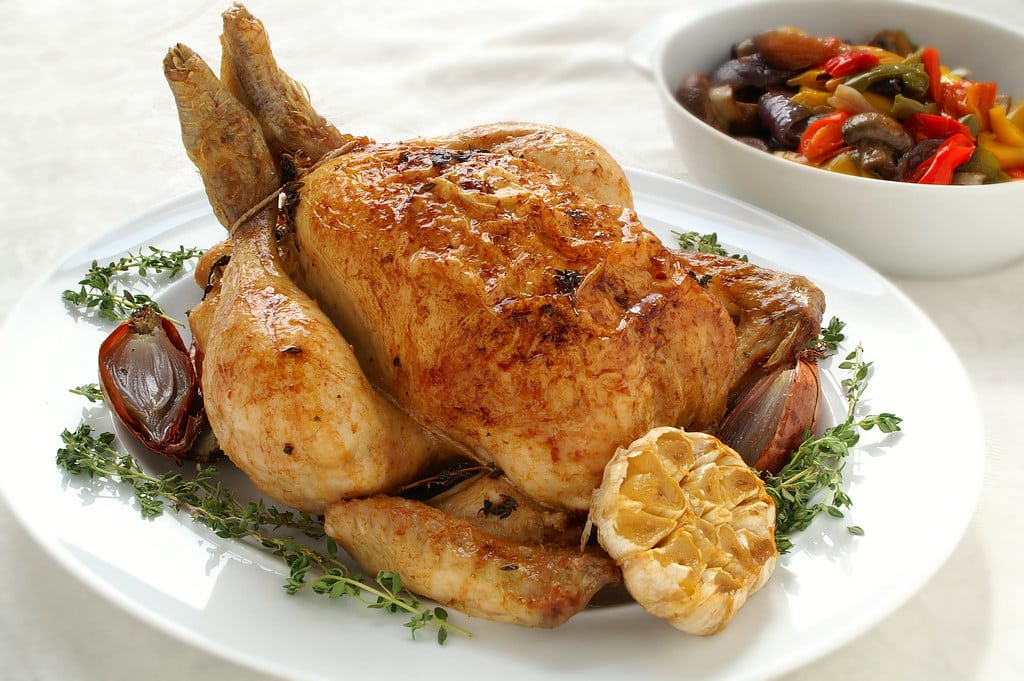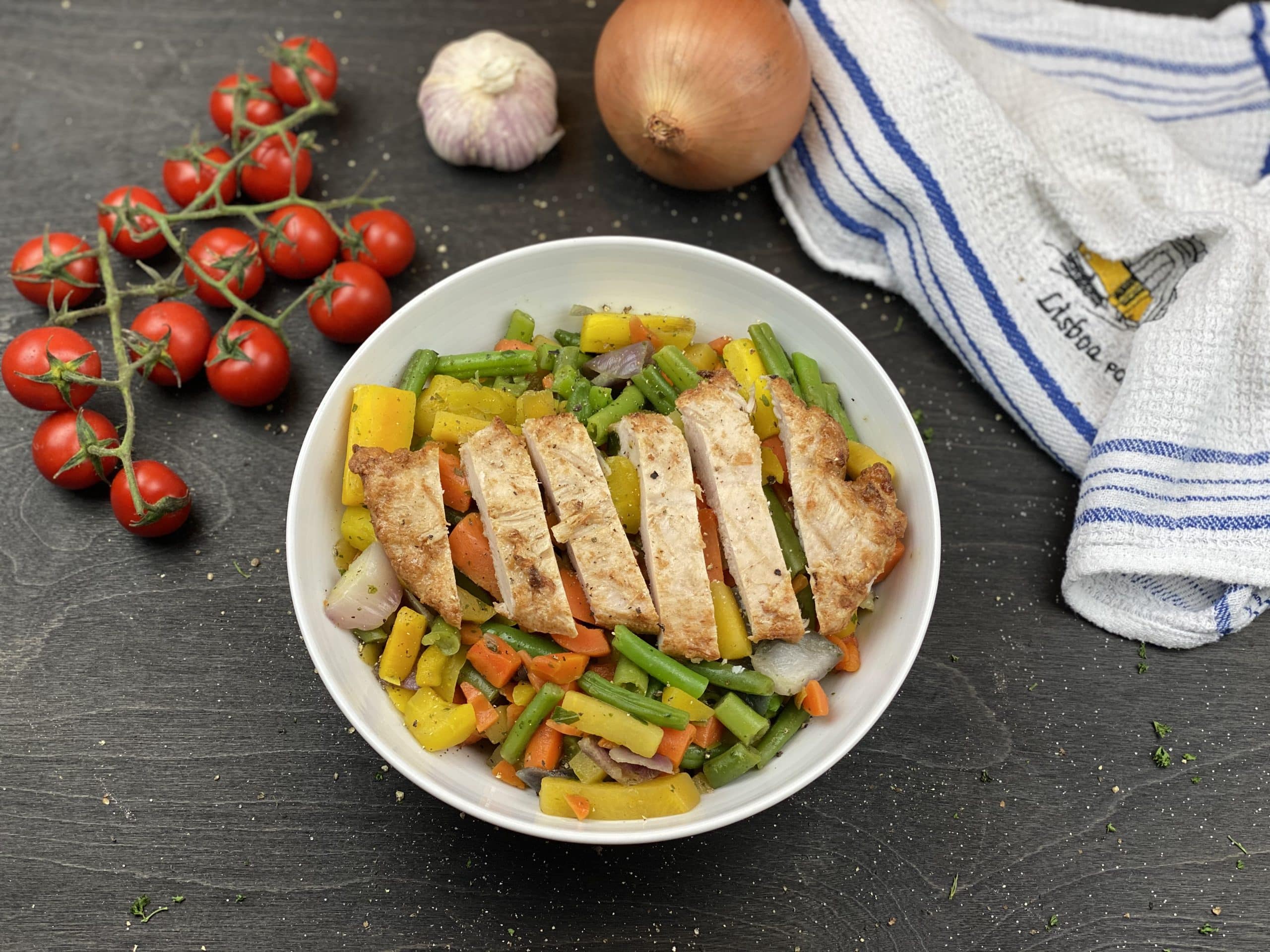Italy sparks joy with its dazzling sights, but the true magic lies in tasting prosciutto. This savory treat does more than delight your taste buds—it carries a rich history packed with tradition and care stretching back hundreds of years. Imagine tender, melt-in-your-mouth slices, each one shaped by skilled hands like a precious secret. Food lovers chasing bold, real flavors find pure happiness here. Prosciutto making sticks to strict rules that keep its quality shining bright. Eating it feels like jumping right into Italy’s soul, turning every bite into a lively party. Dive in to discover why this simple delight holds so much special charm. Perfect for anyone who craves amazing food and a real flavor journey. Keep going to unlock the secrets behind Italy’s most loved taste.
Italians are very proud of their prosciutto and for good reasons.
Perhaps you’ve seen it on a menu before and wondered what is prosciutto.
Prosciutto is an Italian dry-cured ham that is usually thinly sliced and served as an appetizer.
The meat is cured with salt and spices for several months, giving it a unique flavor and texture.
There are two main types of prosciutto: Prosciutto Crudo and prosciutto Cotto made of raw pork and cooked ham, respectively.
This article will address everything you need to know about prosciutto, from its history and different types to what is prosciutto used for and the best side dishes.
Thus, in the end, you’ll be an expert on all things prosciutto.
History of Prosciutto
Prosciutto dates back to Roman times when it was a popular way to preserve meat.
The word prosciutto comes from the Latin word proscaenium, meaning “before the stage.”
This is because, in ancient Rome, cured meats were hung in front of the stage before plays as an offering to the gods.
During the Middle Ages, prosciutto became a staple in many European countries, including Italy, Spain, and Germany.
Cured meats were also a popular way to preserve food during long journeys because they didn’t require refrigeration.
This made them the perfect food for traveling armies.

What Kind of Meat is Prosciutto
If you’re wondering what kind of meat is prosciutto, the answer is pork.
More specifically, from pigs’ hind legs or thighs.
This part of the pig has more fat than other cuts, which helps to keep the meat moist during the curing process.
What are the Main Types of Prosciutto?
Prosciutto is either raw or cooked, and there are several types:
Prosciutto Crudo
Raw, or prosciutto Crudo, is the most common type of prosciutto.
It’s made from pork cured with salt and air for nine months.
The meat is then thinly sliced and served uncooked.
Prosciutto Crudo has a slightly salty flavor with a hint of sweetness.
Prosciutto Cotto
Cooked, or prosciutto cotto, is made from pork cured with salt and spices for several months.
The meat is then cooked until it’s tender.
Prosciutto cotto has a milder flavor than prosciutto crudo.
What are the Varieties of Prosciutto Crudo?
Prosciutto di Parma: This is 100% natural with no added preservatives. It’s made from the hind legs of pigs born and raised in the Parma region of Italy. The meat is cured for at least 12 months and has a mild, sweet flavor.
Prosciutto di San Daniele: The salting process for this prosciutto is shorter than Prosciutto di Parma, only lasting about seven months. The pigs used must also be born and raised in a specific region of Italy. The result is a sweeter and more delicate flavor.
Prosciutto di Toscano: This originates from the Tuscany region of Italy. It’s made from pork cured with Tuscan sea salt for at least three months. The resulting flavor is slightly salty with a hint of smokiness.
What are the Varieties of Prosciutto Cotto?
Culatello: This is made from the hind leg of a pig and cured for at least 12 months. It has a delicate flavor with a slightly sweet aftertaste.
Zampone: This is made from a pig’s foot that has been deboned and stuffed with ground pork, pork fat, and spices. It’s then cooked and usually served with lentils.
Prosciutto Cotto Americano: A type of ham that’s been cured and smoked. It has a milder flavor than other types of prosciutto Cotto.
Prosciutto Cotto Italiano: A type of ham that’s been cured with salt and spices. It has a stronger flavor than prosciutto cotto Americano.
Bacon and Pancetta: It’s made from pork belly, cured with salt and spices. It has a strong flavor and is often used in cooking.

How is Prosciutto Made?
The process of making prosciutto is called curing, a method of food preservation that has been used for centuries.
Curing meats involves using salt to draw out moisture and prevent the growth of bacteria.
Below describes what is prosciutto meat and its preparation process:
Tagging: The first step is to tag the hind leg or thigh of a pig with the date it was slaughtered. This helps the producers keep track of when the curing process should begin.
Trimming: The excess fat and connective tissue are trimmed off the meat.
Curing: The salt-master rubs sea salt into the meat, which begins the process of drawing out moisture. Salting is done traditionally by hand, but some producers now use machines.
Aging: The salted meat is then placed on racks and left to dry in temperature-controlled rooms for 60-90 days. During this time, the salt slowly breaks down the protein in the meat, giving it a characteristic texture.
Washing: Hams are then washed with a vinegar solution to remove the salt.
Drying: The hams are then hung to dry for several weeks in temperature-controlled rooms.
Final Curing: The last step is to age the ham for at least 12 months in a cool, dry place. This allows the flavors to develop and the meat to soften.
Inspection: An independent inspector checks the ham to ensure it meets quality standards.
What is the Best Way to Serve Prosciutto?
Prosciutto is a versatile ingredient used in a variety of dishes.
For instance, you can eat it as-is, as an appetizer, or slice it thin and added to salads.
It also pairs well with fruits and cheeses.
If you’re feeling adventurous, you can even use it in desserts.
The rind of the prosciutto can also be used to flavor soups or stews.
Here are some serving suggestions:
- Wrap figs or melon in prosciutto for a quick and easy appetizer.
- Add thinly sliced prosciutto to your favorite salad.
- Make a pizza with prosciutto, arugula, and Parmesan cheese.
- Roll up some Prosciutto and stuff it inside chicken breasts before cooking.
- Use it as a topping for your next cheesecake or fruit tart.
What are the Benefits of Prosciutto?
Prosciutto is a good source of protein and contains essential vitamins and minerals.
It’s also low in fat and calories, making it a healthy choice for those on a weight-loss diet.
Additionally, the curing process used to make prosciutto helps preserve the meat and prevent the growth of harmful bacteria.
When buying prosciutto, look for a ham that’s been aged for at least 12 months.
This will ensure that you get the best flavor and quality.
Prosciutto should be stored in the refrigerator, wrapped tightly in plastic wrap.
It will keep for up to two weeks.
For longer storage, prosciutto can be frozen for up to six months.
When ready to use, thaw the prosciutto in the refrigerator overnight.
How to Cook Prosciutto?
Although prosciutto is typically served raw, you can also cook it.
When cooking prosciutto, don’t overcook it, as this will result in a hard and chewy texture.
The best way to cook prosciutto is by baking or grilling.
Here are some tips for cooking prosciutto:
- Preheat the oven to 400 degrees Fahrenheit.
- Line a baking sheet with parchment paper and place the prosciutto on the sheet.
- Bake for 12-15 minutes, or until the prosciutto is crisp.
- Remove from the oven and let cool before serving.
- Preheat your grill to medium-high heat.
- Place the prosciutto on the grill and cook for about two minutes per side, or until crisp.
- Remove from the grill and let it cool before serving.
What is prosciutto FAQs
What is the taste of Prosciutto?
Prosciutto offers a balance of sweet and salty flavors with a hint of umami.
The taste of prosciutto also depends on the mode of preparation.
For instance, aged prosciutto will have an intense flavor.
How do you say Prosciutto?
Prosciutto is pronounced “pro-SHOO-toh.”
The word prosciutto comes from the Latin word proscūtum, which means ” ham” or “pork.”
What cheese compliments Prosciutto?
The most popular cheese to pair with prosciutto is Parmesan.
Other good choices include mozzarella, ricotta, and pecorino.
Is Prosciutto the same as ham?
No, prosciutto is a type of cured ham that’s made in Italy.
Ham is a general term that can refer to any kind of cured pork.
Is Prosciutto gluten-free?
Prosciutto is gluten-free and available in most grocery stores and specialty food shops.
You can also purchase it online.
What are the white spots on Prosciutto?
The white spots on prosciutto are a type of mold that’s common in cured meats.
The mold helps to protect the meat from spoilage, and it’s harmless to eat.
Conclusion
Prosciutto is a flavorful and versatile ingredient used in various dishes.
It’s also healthy and low in calories, making it an excellent choice for those on a weight-loss diet.
When buying prosciutto, look for a ham aged for at least 12 months to get the best flavor and quality.
The best prosciutto is pinkish with some fat running through it.
However, the flavor will vary depending on how it’s prepared.
If you’re looking for a milder flavor, opt for prosciutto that’s been aged for a shorter period.
For a more intense flavor, choose prosciutto that’s been aged for longer.
Prosciutto can be stored in the refrigerator, wrapped tightly in plastic wrap.

What Is Prosciutto? A Guide To The Italian Delicacy
Equipment
- 1 oven
Ingredients
- 10-12 lb leg pork
- 5-10 lb salt
- 5 lb peppercorns
- 4-5 heads garlic
- Vinegar
Instructions
- Preheat the oven to 400 degrees Fahrenheit.
- Line a baking sheet with parchment paper and place the prosciutto on the sheet.
- Bake for 12-15 minutes, or until the prosciutto is crisp.
- Remove from the oven and let cool before serving.
- Preheat your grill to medium-high heat.
- Place the prosciutto on the grill and cook for about two minutes per side, or until crisp.
- Remove from the grill and let it cool before serving.
Nutrition
- 25 Simple Lemon Dessert Recipes - January 2, 2026
- 25 Delicious Jalapeno Recipes - January 2, 2026
- 25 Homemade Sour Cream Recipes - January 2, 2026



